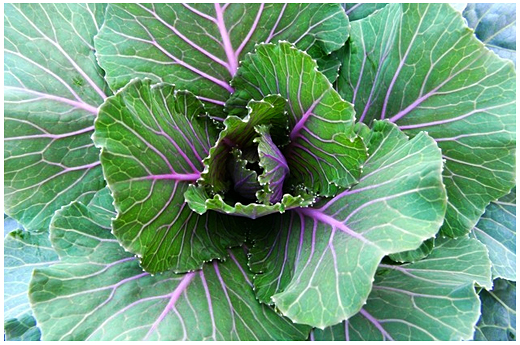By guest blogger Drew Ramsey, MD, author and mental health expert
Odds are you’re missing some crucial ingredients for feeling your best. Most of us are. For the first time in the history of the world we are both overfed and undernourished. A steady flow of misinformation about health has led most Americans to eat the wrong fats (or simply eschew fat), an excess of sugar (52 teaspoons a day!), a constant stream of refined carbohydrates, and a modern chemistry lab of chemicals that color, preserve, and “enhance” our food. With so much focus on the obesity and diabetes epidemics, the notion that our Modern American Diet also wreaks havoc on our brain health rarely gets mentioned. But given the fact that your brain is the most metabolically active organ in our body, it makes sense. And that’s why this year we should all start feeding our brains.
How do we do that? With a brain food prescription from The Farmacy, consisting of farm-fresh, minimally processed food! The data keeps pouring in that an organic plant-based diet with carefully selected meat and seafood is the best way to feed your brain. Yes, you can eat to build a better (and happier) brain.
There are some foods that we know we should be eating, but we might not be eating them right. Eggs, for example. A farm-fresh egg yolk from a chicken that’s been allowed to forage outdoors for its food is an incredibly powerful brain food. But a lot of people skip the yolks and go for just the whites, thinking they’re getting the protein they need and skipping the harmful cholesterol and fat. Yet the yolk is where it’s at, nutrientwise! And studies repeatedly show that eating cholesterol—and eggs specifically—has no ill effects on your health. Your brain is primarily made of fat and relies on your consuming a steady supply for it to function at its peak.
We obsessively count calories, a crude measurement that makes a 12-ounce can of soda equal to 5 cups of chopped kale (both are about 160 calories). I hope 2013 will be the year you begin to focus instead on eating for brain health and for happiness, a diet of real nutrient-dense, farm-fresh food that ensures you’ll be satisfied, well nourished, and better connected to your food system.
To get you started, here are my Top 3 Brain Foods for 2013 (eggs are a given). Try to add these foods to your diet weekly and get rid of as many packaged foods as you can (if it has more than 6 ingredients, toss it!), and you’ll be on your way to building a better brain with real food.
#1: Honey
Sweet stuff tastes delicious. Sugar is making us fat. These two facts are causing considerable confusion and a whole lot of guilty eating. Sugar is such a bad word these days, but people forget that sugar is the main energy source for our bodies and one of the main sources of fuel for our brains (unless you are eating strict paleo or Atkins, in which case, your brain is running on ketones, the other brain fuel…but that’s a post for another day).
The answer to this sweet conundrum is that you should limit processed and refined sugars and stick to sugars that are close to nature. Honey is a great example. Its sweetness comes with a variety of vitamins, minerals, and antioxidants from plants, and those promote health. Unlike refined sugar or high-fructose corn syrup (HFCS), honey possesses 181 different molecules, and they have the biological capacity to fight free radicals, bacteria, and inflammation.
Swapping refined sugars for local honey also means you are supporting your local food ecosystem. Pollinators like bees are key to growing food. I recently got a sweet lesson at an apiary in southern Indiana on how honey is made and talk in more detail about its health benefits.
#2: Kale
Kale is the star of The Farmacy. And it is exploding as a popular food, and with good reason. This cruciferous plant comes in dozens of varieties and is one of the most nutrient-dense foods on the planet. It is one of the few foods that I eat almost every day: kale and eggs for breakfast, poached wild salmon on a bed of kale for lunch, kale smoothies and kale salads…anytime. Kale is incredibly good for your health, not just because it yields a mother lode of vitamin C (134 percent in 1 cup), vitamin K (684 percent in 1 cup), and vitamin A (206 percent in 1 cup), but also because it’s high in molecules called phytonutrients that are both powerful antioxidants and signaling molecules that decrease inflammation in the body.
It’s really easy to prepare this top superfood, but many people I’ve talked to seem hesitant to try it because they’re not sure what to do with it and how to make it palatable. Given that kale is also a top food for brain health, something had to be done. So, I teamed up with Chef Jennifer Iserloh and we wrote 50 Shades of Kale, which is full of great info and recipes for every meal of the day, from Blueberry Kale Smoothies to Kale Beef Tacos to Kale Chocolate Chip Cookies and even Kalejitos. You can jump-start your health in 2013 (officially the Year of Kale) with our 7 Days of Kale video series.
And if you want to learn more about The Farmacy and why kale is so amazing, let’s head to my organic kale patch for a lesson.
#3: Mussels
Along with all the other bivalves, mussels are a perfect brain food because they are packed with DHA, heme iron, and vitamin B12, three key nutrients that are vital to protecting your brain health, building feel-good neurotransmitters like serotonin, and preserving your memory as you age. They’re also packed with some rare trace minerals on which a healthy, happy brain depends.
Every 3-ounce serving of mussels contains 430 milligrams of DHA, which is equivalent to three to five typical drug-store fish oil pills. DHA is the main omega-3 that is transported into the brain, where it serves as a building block of the neurons responsible for all your thoughts and feelings. People with high levels of DHA in their blood have been found to have slower rates of brain shrinkage as they age, while Alzheimer’s sufferers often have low levels of DHA in their blood. In just three ounces you also get 340 percent of your daily vitamin B12, another nutrient with a high rate of deficiency, especially in vegans (more than 50 percent in studies), and low levels lead to mood, concentration, and memory problems and, eventually, to irreversible nerve damage.
Mussels are endorsed as an environmentally sound food source by the Environmental Defense Fund because the mollusks are filter-feeders that help clean the waters around them. Most mussels are farm-raised on ropes hung in the ocean that do little or no damage.
Finally, mussels are readily available, inexpensive (about $4 per pound), and are sold alive, so they are always eaten fresh. Also, they are so easy to prepare: Simply rinse and scrub them, toss them in a pot with a few cups of water, some herbs, garlic, and a little white wine, cover, and steam them (or check out my recipe).
Here’s hoping 2013 will be a year of brain food for you, filled with kale, honey, and mussels, as well as the blessing of farm-fresh food. I hope this post inspires you to eat to build a better brain.
 Drew Ramsey, MD is one of psychiatry’s leading proponents of dietary change to balance mood, sharpen brain function, and improve mental health. As an assistant clinical professor of psychiatry at Columbia University in New York, his clinical work focuses on the treatment of depression and anxiety with a combination of psychotherapy, diet and lifestyle modification, and psychopharmacology. His books The Happiness Diet (Rodale, 2011) and 50 Shades of Kale (Minerva Salus, 2012) and blogs The Farmacy and Recipe for Happiness aim to help people eat to for better brain health. Learn more at DrewRamseyMD.com, on Facebook, and by following him on Twitter @DrewRamseyMD.
Drew Ramsey, MD is one of psychiatry’s leading proponents of dietary change to balance mood, sharpen brain function, and improve mental health. As an assistant clinical professor of psychiatry at Columbia University in New York, his clinical work focuses on the treatment of depression and anxiety with a combination of psychotherapy, diet and lifestyle modification, and psychopharmacology. His books The Happiness Diet (Rodale, 2011) and 50 Shades of Kale (Minerva Salus, 2012) and blogs The Farmacy and Recipe for Happiness aim to help people eat to for better brain health. Learn more at DrewRamseyMD.com, on Facebook, and by following him on Twitter @DrewRamseyMD.
Kale Photo: srqpix





Thank you for this list. it is good information for me as I am recovering from a bad case of neurologic Lyme Disease and Bartonella (another insect-born neurological infection).
I am surprised at your inclusion of mussels in the list. I have previously read that due to water contamination, we should avoid mussels. Scientists measure mussel contamination to decide whether to close beaches to swimmers because mussels so readily absorb toxins .
We recently changed the filter for our home heater and it was filthy, full of dust and allergens. That is the function that mussels and other filter feeders perform in shallow ocean waters. Why would we want to eat that? Just because they’re important for the environmental health of the ocean doesn’t mean it is good for us to eat them.
Surely there is a different source of DHA and B12 that doesn’t come with a large dose of toxins.
I want to start eating healthy organic foods but don’t really even know the basics?
Hey, You’ve performed a great job. I will undoubtedly yahoo that along with the view would suggest to help my buddies. Most likely they’ll be benefited from this amazing site.
Willingly I accept, the theme is interesting, I will take part in discussion together we can come to a right answer. i am assured. Vitamin b 12 orthomol